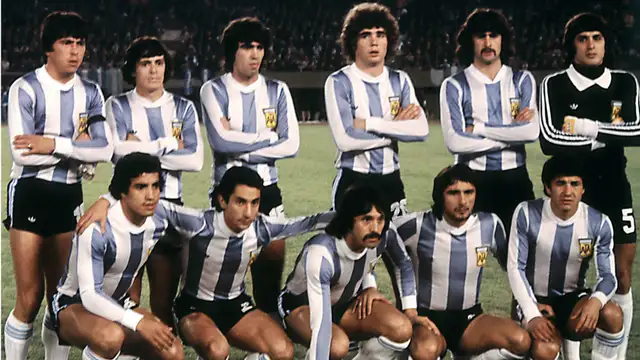
The Dark Story of the Murderous Dictatorship Behind Argentina’s 1978 World Cup Win
The 1978 FIFA World Cup, held in Argentina, is often remembered for the joy it brought to a football-crazed nation as they won their first-ever global title. The image of a triumphant Argentina, led by players like Mario Kempes, celebrating in Buenos Aires is iconic. However, this tournament’s legacy is stained by the dark political shadow that loomed over the country at the time—a violent military dictatorship responsible for widespread human rights abuses.
In 1976, two years before the World Cup, a coup d’état overthrew Argentina’s democratically elected government, installing a military junta led by General Jorge Rafael Videla. This regime ruled with an iron fist, waging a “Dirty War” against perceived political opponents. Tens of thousands of people were “disappeared”—a term that became synonymous with extrajudicial killings, kidnappings, and torture carried out by the state. Estimates suggest between 10,000 and 30,000 Argentinians disappeared during this brutal period.
The junta used the World Cup as a propaganda tool, intending to distract the international community from its human rights abuses and present Argentina as a stable, successful nation. The tournament offered the perfect stage for the regime to project this image, even as horrific atrocities were being committed behind the scenes.
The 1978 World Cup became a carefully orchestrated public relations campaign for the dictatorship. While the streets of Buenos Aires were decorated with banners, and the stadiums filled with cheering fans, just miles away, thousands of people were imprisoned, tortured, and murdered in clandestine detention centers. One infamous detention site, the Navy Mechanics School (ESMA), operated just a few kilometers from the Estadio Monumental, where the final match would take place. Prisoners at ESMA reportedly heard the celebrations from the stadium while they suffered in silence.
Videla’s government poured resources into ensuring the World Cup went smoothly, understanding the power of international visibility. They wanted to show the world that Argentina was a strong, unified country, not a nation embroiled in political repression and state terror. Foreign journalists and officials were shielded from the realities of the junta’s crimes, and many nations—eager for a football spectacle—looked the other way.
The 1978 World Cup also carried allegations of match-fixing, particularly during Argentina’s 6-0 victory over Peru in the second round, a result that ensured Argentina would advance to the final at the expense of Brazil. The game sparked rumors that the junta had pressured or bribed the Peruvian government and team to throw the match.
Years later, former Peruvian senators, players, and diplomats suggested that the Argentine government had indeed made a deal with Peru. The nature of this deal remains speculative, but some believe it included financial aid, while others allege the release of Peruvian political prisoners. Although the allegations have never been conclusively proven, the lopsided scoreline fueled long-standing suspicions.
### The Legacy of 1978
Argentina’s 3-1 victory over the Netherlands in the final was a moment of national pride for many. The image of Mario Kempes, draped in the Argentine flag, symbolizes one of the country’s greatest sporting achievements. But for the thousands of families who lost loved ones during the Dirty War, the 1978 World Cup is a bitter memory—a celebration built on a foundation of suffering and bloodshed.
In the years following the dictatorship, Argentina grappled with its violent past. The junta fell in 1983, and in the decades since, the country has seen some measure of justice for the victims of the Dirty War. High-ranking military officers, including Videla, were eventually prosecuted for their crimes. Still, the 1978 World Cup remains a complex chapter in Argentina’s history, representing both the heights of sporting glory and the depths of political repression.
As history has shown, sports and politics are often intertwined. The 1978 World Cup is a stark reminder that even the most joyous occasions can conceal deep and painful truths. For Argentina, the victory on the field was inseparable from the horrors happening off it—a haunting juxtaposition that continues to resonate today.
Read more on;https://sportupdates.co.uk

Leave a Reply